What to Know About Chapter 13 Bankruptcy and FHA Loans
Filing for Chapter 13 bankruptcy can be a difficult and stressful experience. However, it doesn’t mean that homeownership is out of reach. FHA loans, which are designed to help borrowers with less-than-perfect credit, provide an opportunity for individuals who are currently in or have recently completed Chapter 13 bankruptcy to obtain financing for a home. This blog will guide you through everything you need to know about Chapter 13 bankruptcy and FHA loans.
Chapter 13 bankruptcy is a type of bankruptcy that allows individuals with regular income to create a repayment plan for their debts, usually lasting three to five years. During this period, debtors are required to make consistent payments to a trustee, who then distributes these funds to creditors. Unlike Chapter 7 bankruptcy, which involves liquidating assets to pay off debts, Chapter 13 is focused on restructuring debt while allowing the debtor to retain their property, including their home.
How Chapter 13 Bankruptcy Impacts Your Credit
While Chapter 13 bankruptcy can help individuals regain control of their finances, it has a significant impact on credit scores. Filing for bankruptcy stays on your credit report for seven years, and lenders will be cautious when approving loans for individuals currently in or recently discharged from bankruptcy. However, FHA loans are one of the few loan options available to people who are still in a Chapter 13 repayment plan.
FHA Loans and Their Flexibility
The Federal Housing Administration (FHA) provides a flexible loan program aimed at helping people with low to moderate incomes or challenging financial situations become homeowners. FHA loans are backed by the government, which makes them less risky for lenders and more accessible to borrowers with lower credit scores or financial setbacks, such as a Chapter 13 bankruptcy.
Why FHA Loans Are Ideal for Post-Bankruptcy Borrowers
FHA loans are particularly advantageous for borrowers who have filed for Chapter 13 bankruptcy because they offer more lenient qualification criteria compared to conventional loans. The minimum credit score requirement for an FHA loan is lower, and the down payment options are more affordable. Borrowers can also qualify for an FHA loan while they are still in an active Chapter 13 repayment plan, as long as they meet certain conditions.
Steps to Qualify for an FHA Loan During Chapter 13 Bankruptcy
Qualifying for an FHA loan while still in a Chapter 13 repayment plan is possible, but it requires meeting specific guidelines set by the FHA and the lender. Here are the key steps involved in qualifying for an FHA loan during Chapter 13 bankruptcy.
Step 1: Complete At Least 12 Months of the Repayment Plan
One of the primary requirements for obtaining an FHA loan while in Chapter 13 bankruptcy is that you must have made at least 12 months of on-time payments toward your repayment plan. This demonstrates to the lender that you are capable of managing your debt responsibly, even while in bankruptcy.
Step 2: Obtain Trustee Approval
Since Chapter 13 bankruptcy involves a court-approved repayment plan, borrowers will need to obtain written approval from their bankruptcy trustee before applying for an FHA loan. The trustee must confirm that taking on new debt in the form of a mortgage will not jeopardize the ability to continue making payments on the repayment plan. Without this approval, most lenders will not proceed with the loan application.
Qualifying for an FHA Loan After Chapter 13 Discharge
If you have completed your Chapter 13 repayment plan and received a discharge, qualifying for an FHA loan becomes more straightforward. The FHA has specific guidelines that govern how long borrowers must wait after a bankruptcy discharge before applying for a loan.
Waiting Period After Discharge
After the discharge of your Chapter 13 bankruptcy, there is no mandatory waiting period imposed by the FHA before you can apply for a loan. This is one of the key benefits of the FHA program. However, individual lenders may impose their own waiting periods, so it’s important to shop around and find a lender who offers more flexible terms.
Steps to Strengthen Your Application Post-Bankruptcy
Although the FHA does not require a waiting period after a Chapter 13 discharge, strengthening your loan application can improve your chances of approval. Borrowers should focus on rebuilding their credit, maintaining steady employment, and saving for a down payment. Lenders will also review your current debt-to-income ratio to ensure that you can afford the mortgage payments alongside any remaining debts.
The Role of Credit in FHA Loan Approval After Chapter 13
While FHA loans are more forgiving when it comes to credit scores, maintaining a strong credit profile is still important when applying for a mortgage after Chapter 13 bankruptcy. Lenders will look beyond your bankruptcy and review your recent credit activity to assess your risk as a borrower.
Rebuilding Your Credit After Bankruptcy
To improve your chances of qualifying for an FHA loan after bankruptcy, focus on rebuilding your credit as soon as your repayment plan is complete or discharged. This can be done by paying down existing debts, making all payments on time, and avoiding new debt. Many borrowers find that secured credit cards or small installment loans can help rebuild their credit score over time.
How Lenders Assess Credit During Chapter 13
For borrowers applying for an FHA loan while still in a Chapter 13 repayment plan, lenders will review your credit history to ensure there are no new delinquencies or defaults. They will also examine your history of payments within the bankruptcy to ensure you have adhered to the court-approved plan. This detailed review helps lenders determine whether you are financially stable enough to handle a mortgage.
Compensating Factors for FHA Loans During and After Chapter 13
Even if your credit is less than perfect, there are compensating factors that can strengthen your application for an FHA loan. Lenders will consider various aspects of your financial situation, including your employment history, savings, and rental payment history.
Strong Employment History
A stable and long-term employment history can be a strong compensating factor when applying for an FHA loan during or after Chapter 13 bankruptcy. It shows lenders that you have a reliable source of income and are capable of meeting your financial obligations.
Cash Reserves and Savings
Having significant cash reserves can improve your chances of approval for an FHA loan. Lenders like to see that borrowers have savings set aside to cover unexpected expenses or temporary income loss. This financial cushion can serve as a mitigating factor when dealing with low credit or past financial challenges like bankruptcy.
Conclusion: Overcoming Chapter 13 Bankruptcy for FHA Loan Approval
While Chapter 13 bankruptcy can complicate your ability to obtain a mortgage, FHA loans provide a valuable option for borrowers looking to finance a home either during or after the bankruptcy process. By meeting the necessary repayment milestones, gaining trustee approval, and working on rebuilding your credit, you can improve your chances of qualifying for an FHA loan. The flexibility of FHA loans makes them an ideal choice for individuals with past financial struggles who are now ready to become homeowners.

